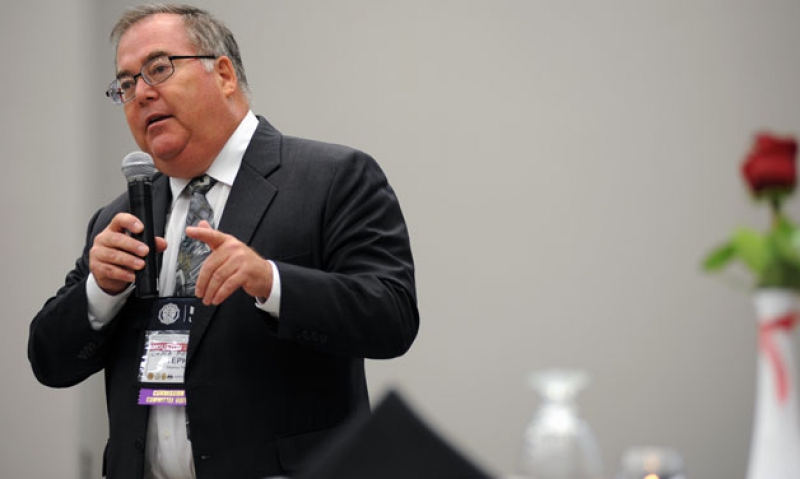
A limited budget has hindered the agency charged with recovering, identifying U.S. servicemembers’ remains, but more than 30 IDs still were made this year.
Like every other federal agency, the Joint POW-MIA Accounting Command (JPAC) has felt the effects of sequestration.
During an Aug. 26 briefing at The American Legion National Convention in Houston, Steve Thompson – JPAC’s family and veterans liaison – said that sequestration has impacted staffing and man hours for the agency tasked with conducting global search, recovery and laboratory operations to identify unaccounted-for Americans from past conflicts in order to support personnel accounting efforts by the Department of Defense.
Thompson, a member of American Legion China Post 1, said JPAC’s civilian employees were furloughed one day a week for six weeks, though JPAC did get permission to reschedule furlough days to meet mission requirements. The ability of those civilians to work overtime during deployments and business travel also was impacted.
“In spite of all the budget frustrations that we’ve been dealing with, we’ve really been doing our best to overcome some of the hurdles,” Thompson said.
Thompson also discussed a recent U.S Government Accountibilty Office report delivered in response to a 2010 National Defense Authorization Act (NDAA) mandate that DoD increase capabilities and capacities within JPAC to increase the amount of servicemembers identified to 200 per year by 2015.
GAO's report found that community-wide planning to achieve that goal has been impeded by disputes and by a lack of coordination among members of the missing persons accounting community, with the Defense Prisoner of War/Missing Personnel Office and JPAC developing two competing proposed plans that didn’t encompass the entire accounting community. The report also stated that various members of the missing persons accounting community are not all clearly articulated in existing DoD directives or instructions.
The report made nine recommendations, including possible options for an accounting community reorganization; Thompson said that DoD agrees with eight of the nine recommendations. “We think a reorganization is probably coming,” Thompson said.
But progress is being made, Thompson said. In 2013, 34 missions have resulted in identifying five U.S. servicemembers from the Vietnam War, while five Korean War missions have led to 20 identifications. Seven World War II remains also have been identified.
Identifying Vietnam War remains is a more difficult process, Thompson said.
“We can go to North Korea, recover remains, and the presentation of those remains is excellent,” he said. “But in Southeast Asia, the soil acidity is quite high – it’s actually about the same acidity as a Rolaids – and it’s dissolving the remains in the soil as time goes by.
“You’ve still got wives, and you’ve still got moms that are waiting for their sons and husbands to come home from Vietnam.”
In 2014, 76 JPAC recovery teams and 37 investigation teams are planned to conduct missions in 19 countries.
Also, the agency will move into a new facility in Hawaii, named for deceased Sen. Daniel Inouye, in 2016. And last June, the agency opened an annex at Offutt Air Force Base in Nebraska. Thompson said the annex doubles JPAC’s lab space needed for the analysis of co-mingled skeletal remains, as well as permits easier access to archive facilities and government agencies, and brings JPAC closer to universities for recruiting purposes.
And the agency’s Korea Forward Element – which puts JPAC workers side by side with South Korea’s Ministry of National Defense Agency for KIA workers during four-month deployments in South Korea – has resulted in identifying the remains of two U.S. servicemembers since 2012.
“It’s easier for us to have locals talking to locals,” Thompson said of the program.
Searching areas all over the world provides unique challenges, but Thompson said one challenge is universal. “Our biggest enemy is the passage of time,” he said.
- Convention

